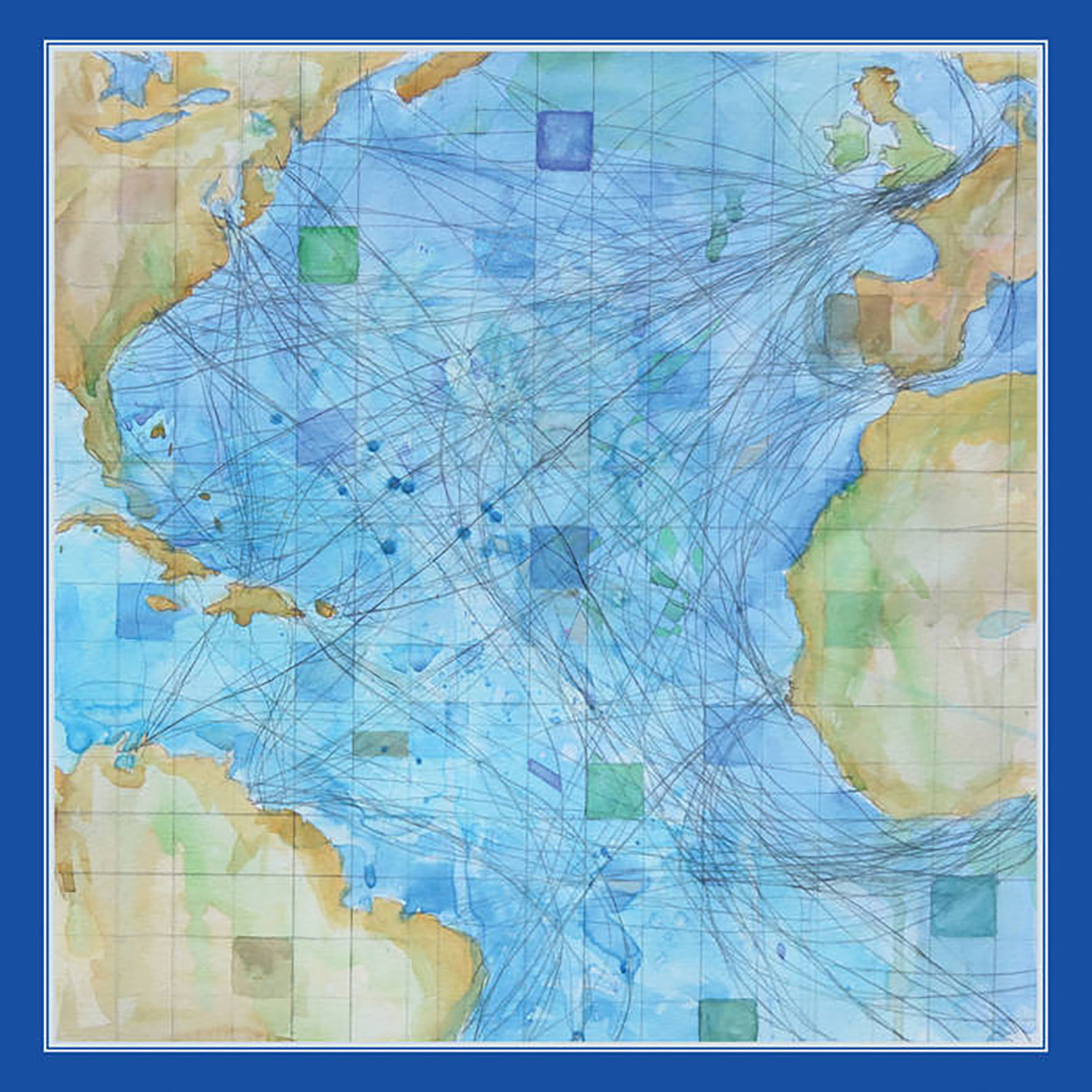
Somehow I have managed to remain largely unfamiliar with Shane Parish's work until now, which nicely set the stage for me to be properly blindsided by this latest release. That said, I am not sure a deep familiarity with Parish's previous albums would have changed all that much, as this album is quite an adventurous departure from his expected fare in some significant ways. The biggest twist, of course, is that Liverpool is essentially an album of old sea shanties. While that probably is not something I would have actively sought out on my own, I am damn glad that this album found me, as Parish's ingenious instrumental arrangements transform an ostensible curiosity into a goddamn revelation. Crucially, Liverpool does not sound at all like an album of sea shanties, as Parish merely borrowed their vocal melodies and made said melodies the backbone for a killer solo guitar album that favorably calls to mind everyone from Tortoise to Richard Bishop to Bill Orcutt (and manages to do it quite seamlessly). In hindsight, it is downright miraculous that other artists have not been making albums in this vein for years, as it is such a perfect and obvious starting point for greatness (in the right hands, at least). Parish essentially just found a bunch of timeless, poignant melodies waiting to be borrowed and he wisely embraced them. With such beautiful raw material as a starting point, it is hard to imagine that any good guitarist could have blown it and made a bad album, but it is similarly hard to imagine anyone else making an album as uniformly stellar as Liverpool: an excellent idea matched with even more excellent execution.
Unlike most traditional sea shanties, the opening "Liuerpool" erupts from the speakers as a squall of guitar noise and cymbal flourishes before settling into a simmering groove that feels like an darkly jazzy strain of post-punk. Naturally, the appearance of Parish's shimmering and hazy guitar melody only makes things better, but I was surprised at the central role that guest drummer Michael Libramento plays in the song's success, as "Liuerpool" sounds more like the work of a tight band of virtuosos than something that is ostensibly a solo guitar album. In fact, Libramento's presence proves to be quite a reliable harbinger of greatness throughout the album. as the tom-driven "Venezuela" and the explosive "Haul Away Joe" are also clear album highlights. Notably, none of the three pieces I have mentioned thus far resemble each other much at all, as "Venezuela" calls to mind Sublime Frequencies-damaged surf guitar, while "Haul Away Joe" feels like the dueling guitar crescendo of an epic psych rock masterpiece. Elsewhere, "Randy Dandy O" delves into incendiary Orcutt territory when its central melody gives way to a flurry of open strings, wild bends, pull-offs, and slashing chords. "Black Eyed Susan" is yet another favorite, as Parish combines ringing arpeggios, muted strums, and a nimbly dancing lead melody with a casual looseness that feels effortless. I am also quite fond of second-tier highlight "Santy Anno," as Parish quickly casts aside the central melody to unleash a likable (if conventional) guitar solo over a chopped and stuttering backdrop that sounds like a helicopter mated with some abstract shoegaze à la lovesliescrushing. The remaining three songs are enjoyable too, but they lack a bit of the pizzazz of their neighbors. However, I could easily see them emerging from Parish's current tour beautifully transformed by some kind of road-tested creative breakthrough. After listening to some of the traditional versions of these pieces and finding them nearly unrecognizable, it seems like major creative breakthroughs must be a somewhat common occurrence for Parish. In any case, Liverpool is a wonderful and oft-surprising release and Shane Parish now joins Orcutt, Daniel Bachman, and Sarah Lipstate in the pantheon of wildly inventive solo guitarists that I will be actively following for years to come.
Samples can be found here.
Read More

